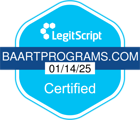The thought of opiate withdrawal while pregnant often scares women who are on pain killers, morphine, heroin or other opioids. It’s often easier to not deal with it instead of face the symptoms. There’s also the issue of feeling judged. Women need to know that help is possible in a caring atmosphere. There are specially-designed centers that provide opiate withdrawal while pregnant services for pregnant and 2-year post-partum parents. The location is Turk Street in San Francisco. Opiate dependence is devastating. Adding the sickness that comes with addiction to the trials of pregnancy is doubly hard. At such a time, many women want to take action and get off opiates for the good of the baby and their own health.
Risks for infants born to women on opioids
Babies have issues when the mother uses opioids while pregnant. The baby has to go through withdrawal after birth, a condition called neonatal abstinence syndrome (NAS) or “neonatal opioid withdrawal syndrome.” The range and severity of the symptoms experienced by the infant depends on a variety of factors. It depends what type of opioid the infant was exposed to and whether the infant was exposed to multiple substances. After the baby is born, he or she may receive pharmacological and non-pharmacological treatments. It’s possible to reduce the effects of NAS when the mother goes through opiate withdrawal while pregnant. The sooner the better for the baby. The good news is that NAS is treatable.
Considerations for opiate withdrawal while pregnant
Going cold turkey from opioids while pregnant is very dangerous for the baby. With a sudden stop in usage, the mother may initiate premature labor, fetal distress, or miscarriage. This is a time when medication-assisted treatment can be both effective and necessary for a continued pregnancy. Women want to give the baby the best opportunity for health. Medication-assisted treatment uses methadone to transition the body off of opioids. Most importantly, methadone is not harmful to the baby. Women who commit to medication-assisted treatment receive the benefit of close monitoring of the withdrawal process. They also have the right amount of methadone to help the body through the transition off of opioids. Methadone is so safe for the mother and baby that mothers who receive methadone are able to breastfeed their babies. Breastfeeding helps with the bonding process, which is an important step in the treatment of NAS.
Counseling as part of opiate withdrawal
Women who receive counseling during the process of getting off of opioids have a much higher success rate for the long term. Meeting with a counselor one-on-one and participating in support groups helps women address the issues that led them to a life of addiction. The psychological addiction to opioids is incredibly strong. It takes more than getting the body off of drugs to break the cycle. With help, it’s possible. And going through opiate withdrawal while pregnant is often the final circumstance that leads a woman to say, “Enough,” and seek treatment.
Importance of the right treatment
It is important that women who are pregnant and want to stop using find a treatment center that specializes in pregnant and post-partum women. Methadone maintenance is a highly effective way to get off – and stay off – opioids such as heroin, oxycodone, hydrocodone, morphine, codeine, fentanyl, or others. Methadone helps to stabilize the mother’s body and also the fetus. With methadone, the fetus avoids the discomfort of withdrawal. A treatment center that specializes in pregnant women is able to also provide prenatal care for a healthier pregnancy and birth. Women need to disclose other substances that they take in addition to opioids so that all issues may be addressed. Because the body continues to change throughout pregnancy, the mother needs the help of a professional who understands both sides of the issues – opioid addiction and pregnancy.
Reference:
Substance Abuse and Mental Health Services Administration. A Collaborative Approach to the Treatment of Pregnant Women with Opioid Use Disorders. HHS Publication No. (SMA) 16-4978. Rockville, MD: Substance Abuse and Mental Health Services Administration, 2016. Available at: https://store.samhsa.gov.


